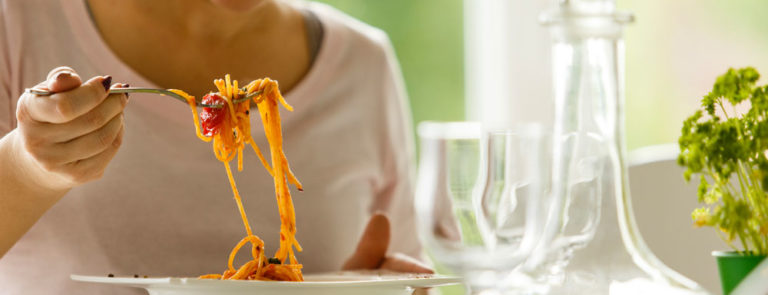15% off €25
A guide to prune juice

Summary
1Is prune juice good for you?
Prune juice is filtered so it doesn’t contain as much fibre as dried prunes, however both are good for your overall health.
2Five health benefits of prunes
We know that prunes can aid digestion. But there are more prune and prune juice benefits when adding them to your diet.
3Top 3 fruit juices to help with constipation
You guessed it…The number one juice for to help bowel movement is prune juice!
If you have decided to look into prune juice, it may be that you are looking for ways in which you can help bowel movement or constipation. However, there is much more to prunes than you might think.
Prunes, or dried plums, can be a good addition to your diet and can be beneficial for constipation due to their high levels of fibre.1
In the following article we’ll go through the motions, so you can learn what introducing prune juice into your diet can do.
Is prune juice good for you?
Prune juice is filtered so it doesn’t contain as much fibre as dried prunes, however both are good for your overall health.
While there is limited scientific proof that prunes can help with digestion relief, it’s commonly thought that prunes and prune juice can keep you regular.
However, there are a number of additional benefits that prune juice can have on your health.
A 2013 study looked at the health benefits of prunes and prune juice.2 Researchers noted that the fruit contains considerable amounts of a sugar alcohol called sorbitol. It was found that prune juice contains 6.1g of sorbitol per 100g of juice, which could be an explanation for its laxative qualities.
Sugar alcohols are a category of sweet carbohydrates and are partially resistant to digestion. Sorbitol in particular passes through your body undigested. It then draws water into the gut, which bulks up the stool and increases bowel movement.
Sorbitol is an effective laxative, which is safe to use, even for older adults.3 Despite the ‘alcohol’ part of the name, alcohol sugars do not contain ethanol, the compound that makes you drunk.
Summary
- Prune juice is filtered and does not contain as much fibre as dried prunes
- Prunes and prune juice contains 6.1g of the alcohol sugar, sorbitol per 100g of juice
- Sorbitol draws water into the gut, which increases bowel movement
- Despite the alcohol name, alcohol sugars don’t contain ethanol and are safe to use
Five health benefits of prunes
- Prunes are high in fibre, which helps digestion
- Juicing prunes will lose some of the fibre
- Prunes and prune juice can help mild constipation
- Prunes can help weight loss in a controlled diet
- Adding fibre to your diet may be able to help with bladder discomfort
- Constipation can have an effect on your bladder
- Prune juice could help with both of the above
- Prunes are high in potassium which can help the body perform many important functions
- The body doesn’t naturally produce potassium, so prunes are a good source
- NHS suggest adults aged between 19-64 should have 3,500mg of potassium per day
- Prunes contain a number of key vitamins that your body requires
- Tiredness and lethargy
- Shortness of breath
- Heath palpitations
- Pale skin
- Prunes contain a lot of iron, which helps produce red blood cells
- Lack of iron in your diet can lead to tiredness, shortness of breath, heart palpitations and pale skin
Is prune juice better than other fruit juices?
- Inactive lifestyle
- Low fibre diet
- Diet that is high in dairy
- Traveling
- Medication
- Pregnancy
- Apples
- Pears
- Grapes
- Pitted fruits, such as plums, peaches, and apricots
- Dried fruit, including prunes and dates
- Fruit and veg are good a source of water, nutrients and fibre.
- Keeping hydrated is a good way of increasing bowel movement
- There are a number of reasons you could be constipated, including an inactive lifestyle, low fibre diet or a diet high in dairy
- Drinking certain fruit juices that contain dietary fibres and sorbitol can help regulate bowel movement
Top 3 fruit juices to help with constipation
Prune juice
Does prune juice make you poop?
How long do prunes take to work?
How to make prune juice
- 300 g prunes
- 2 litres of water
- Add 300g of prunes and two litres of water to a saucepan. Heat the over medium or high heat. Bring to the boil, reduce to low heat, cover with a lid, and simmer for about 2 minutes.
- Pour prunes and water into a blender and blend until smooth.
- If required, pour the blended mixture through a sieve to remove the larger pieces.
- Pour prune juice into bottles and store in the refrigerator.
Lemon juice
Apple juice
How to make apple juice
- Bloating and upset stomach
- Constipation
- https://www.ncbi.nlm.nih.gov/pmc/articles/PMC4291444/
- https://www.tandfonline.com/doi/abs/10.1080/10408398.2011.563880
- https://www.ncbi.nlm.nih.gov/pmc/articles/PMC4848256/
- https://onlinelibrary.wiley.com/doi/full/10.1111/apt.12913
- https://news.liverpool.ac.uk/2014/05/30/eating-prunes-can-help-weight-loss/
- https://onlinelibrary.wiley.com/doi/full/10.1111/apt.12913
- https://southtees.nhs.uk/content/uploads/MICB4817-Over-Active-Bladder.pdf
- https://www.nutrition.org.uk/nutritionscience/nutrients-food-and-ingredients/minerals-and-trace-elements.html?limit=1&start=7
- https://www.nhs.uk/conditions/vitamins-and-minerals/others/
- https://www.environskincare.com/vitamin-a/what-does-vitamin-a-do-for-your-skin/
- https://www.nhs.uk/conditions/iron-deficiency-anaemia/
- https://www.totalhealth.co.uk/clinical-experts/dr-purushothaman-premchand/prune-juice-faqs#drink%20too%20much
- https://www.sunsweet.co.uk/FAQRetrieve.aspx?ID=51414



